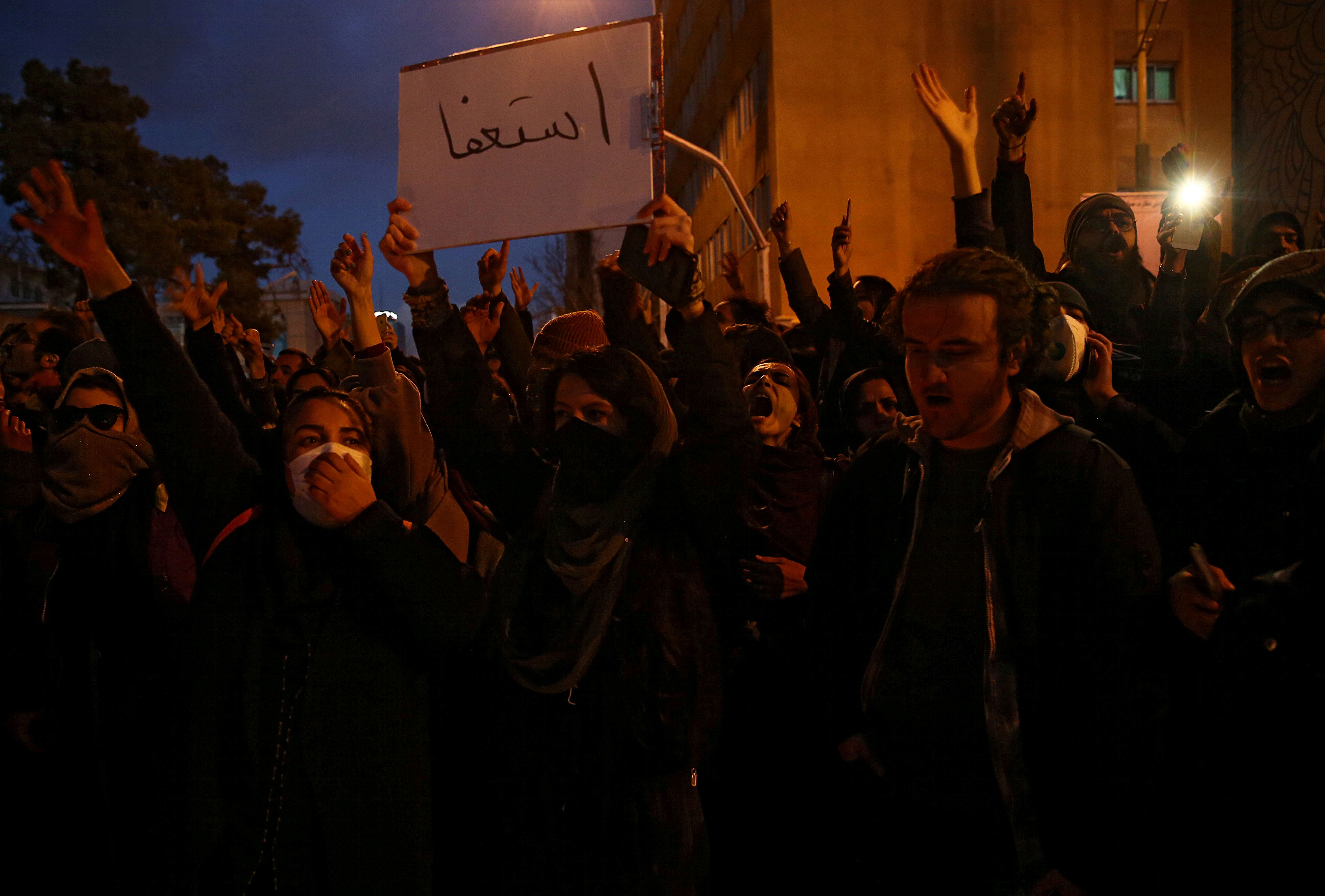January 13, 2020
No one knows what Iranians really think of their government. Outsiders aren't allowed to ask them, and they're not allowed to say. But Iran's supreme leader, its security forces, and all who support them have a common problem: No Iranian under the age of 45 is old enough to remember the 1979 Islamic Revolution that gives them their mandate to rule.
That reality has come into focus again in recent days. On January 3, US forces assassinated Qassim Suleimani, a popular and powerful Iranian general. The killing was a response to an attack by Iran-backed militias in Iraq that killed an American contractor, and to attacks on the US embassy in Baghdad on December 29 and December 31.
On the night that Iran fired missiles at Americans inside Iraq in retaliation for the killing of Suleimani, Iran's air defenses mistakenly shot down a Boeing 737 passenger plane near Tehran's main airport. This error killed 176 people, 82 of them Iranians.
When the US and Canadian governments reported evidence of this mistake, Iranian officials accused them of lying. When they then admitted three days later that Iran's military had "accidentally" shot down the plane, large protests erupted in Tehran and other Iranian cities.
The demonstrators demanded accountability from their government, despite the presence of large numbers of fully armed riot police, security forces patrolling the streets on motorcycles, and an awareness that plainclothes police were moving among the crowd.
They also knew that Iran's security forces are willing to kill protesters. Just two months ago, security forces responded to demonstrations against a government hike in fuel prices by killing some 1,500 people. There is some evidence that police have fired live ammunition at protesters again this week.
Iran's government has also tried to stifle dissent by controlling the flow of information its citizens receive. State media reported that missiles fired following Suleimani's death had killed 80 Americans. In reality, there's no evidence of a single US casualty.
But state officials know the public is less likely to believe these claims when they're forced to admit the US and Canada were right that Iran had shot down that passenger plane. That's why Iranian officials reportedly shut down segments of Iran's internet last week— and why these shutdowns may become more common.
There's no sign that Iran is on the verge of a new revolution. Yes, US sanctions are again strangling Iran's economy with no sign of relief in sight. But protests in Iran are common, and security forces can probably keep them in check for the foreseeable future. The millions of Iranians who turned out across the country to mourn Suleimani also remind us that national pride and fear that the nation is under attack can temporarily bolster unity in Iran, just as in other countries.
Yet, all Iran's protests—whether targeted at corruption, a spiralling economy, suppression of personal freedoms, or at an unaccountable government that spends too much on foreign interventions and not enough at home—may begin to matter, particularly as it becomes harder to ask the public to endure hardships in the name of a revolution that fewer and fewer citizens are old enough to remember.
More For You
Hellenic coast guard performs SAR operation, following migrant's boat collision with coast guard off the Aegean island of Chios, near Mersinidi, Greece, February 4, 2026.
REUTERS/Konstantinos Anagnostou
15: The number of migrants who died after their boat accidentally collided with a Greek Coast Guard vessel in the Aegean Sea on Tuesday. Two dozen people were rescued.
Most Popular
Walmart is investing $350 billion in US manufacturing. Over two-thirds of the products Walmart buys are made, grown, or assembled in America, like healthy dried fruit from The Ugly Co. The sustainable fruit is sourced directly from fourth-generation farmers in Farmersville, California, and delivered to your neighborhood Walmart shelves. Discover how Walmart's investment is supporting communities and fueling jobs across the nation.
Workers repair a pipe at a compound of Darnytsia Thermal Power Plant which was heavily damaged by recent Russian missile and drone strikes, amid Russia's attack on Ukraine, in Kyiv, Ukraine February 4, 2026.
REUTERS/Valentyn Ogirenko
Democratic Alliance leader John Steenhuisen announced Wednesday that he will not run for a third term as leader of the liberal, pro-business party, after months of internal pressure over a host of controversies – including allegations, since cleared, that he used the party credit card for Uber Eats.
© 2025 GZERO Media. All Rights Reserved | A Eurasia Group media company.
